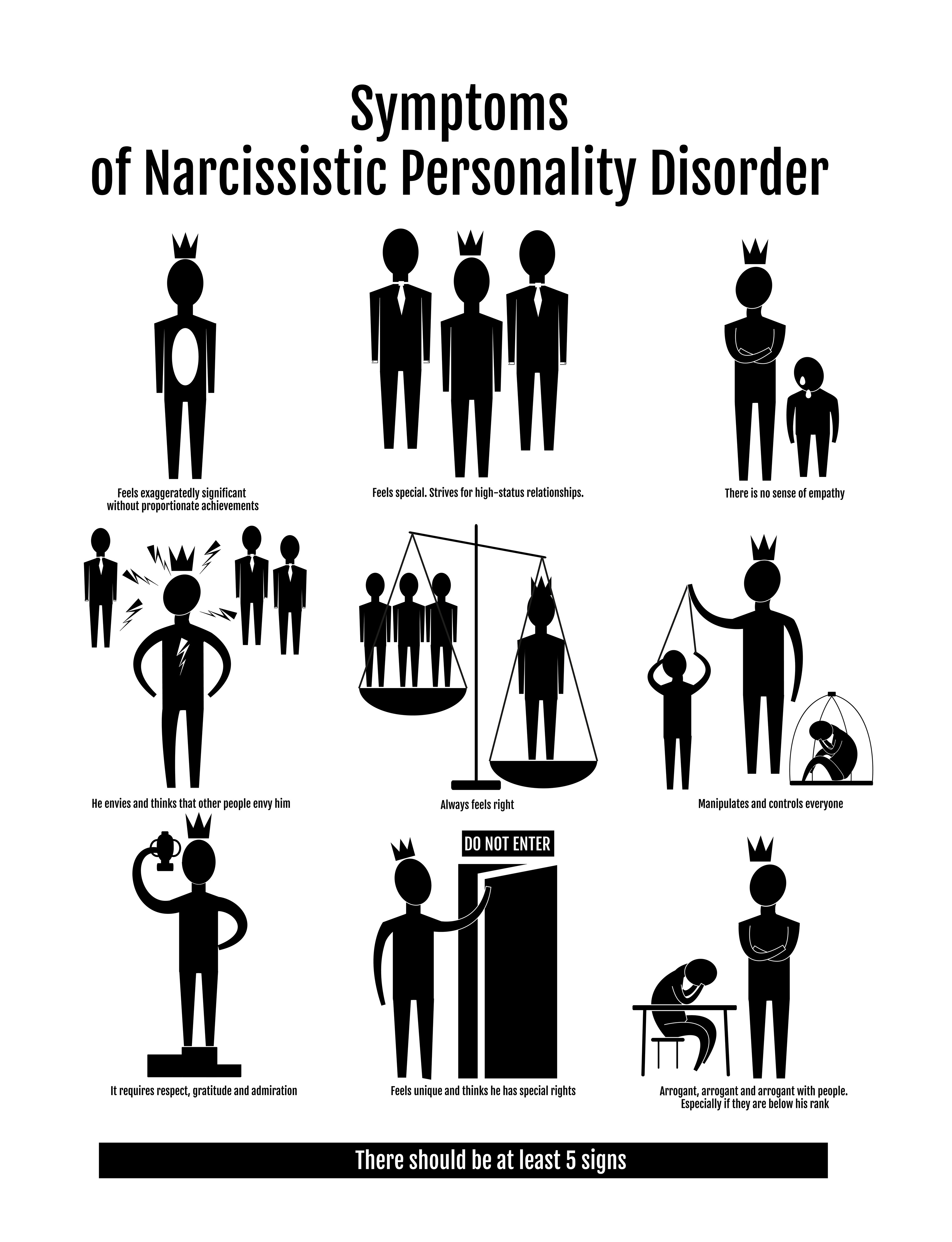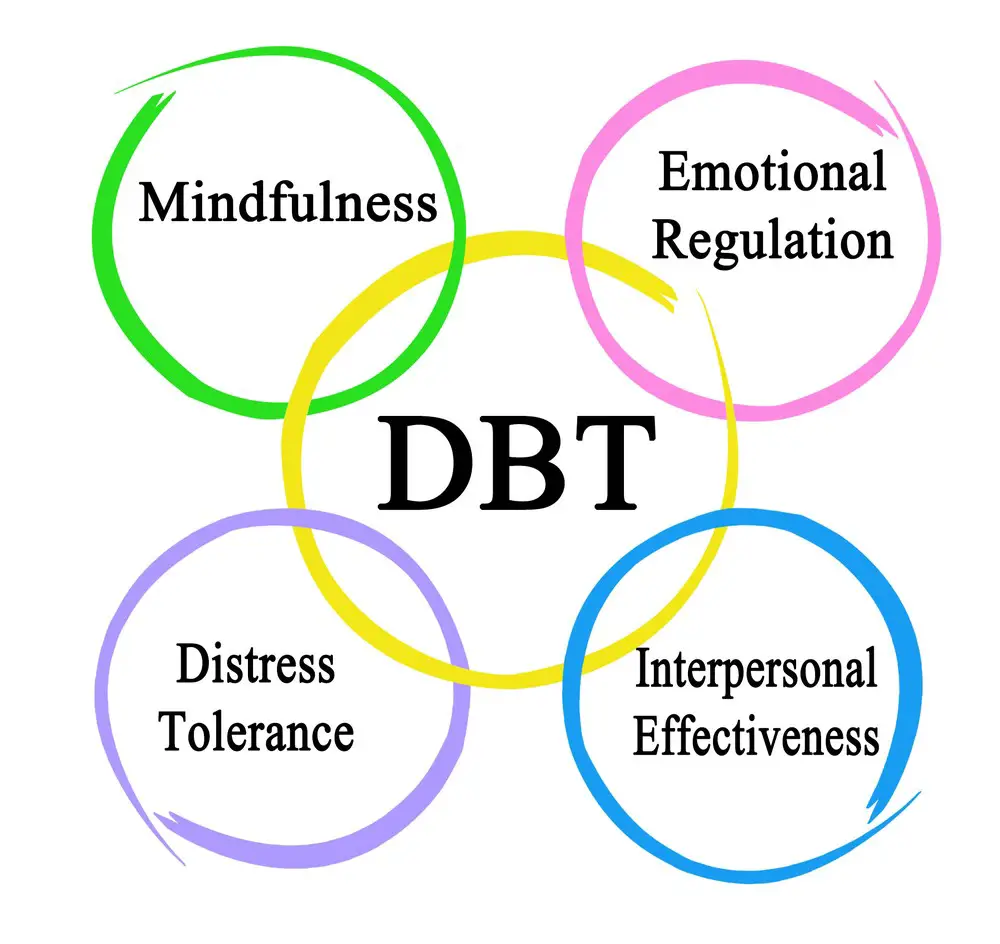As a BetterHelp affiliate, we receive compensation from BetterHelp if you purchase products or services through the links provided
Covert narcissist mothers can be difficult to identify and understand, as they often hide their true nature behind a mask of caring and nurturing behavior. These mothers may seem attentive and loving, but a deep-seated desire for admiration and validation often drives their actions. Covert narcissist mothers employ subtle manipulation tactics to get what they want from their children, frequently causing emotional and psychological damage.
Narcissistic behaviors differ from overt narcissism, where self-centered actions are typically out in the open. In contrast, covert narcissist mothers may seem more reserved and less egotistical. However, their need for control and validation is just as strong. Deciphering the signs and symptoms of a covert narcissistic mother is crucial for the well-being of the children and the family.
Key Takeaways
- Covert narcissist mothers hide their true nature behind a caring facade
- They use subtle manipulation tactics to control their children
- Recognizing the signs and symptoms of covert narcissism is crucial for healing and support.
 Understanding Covert Narcissist Mothers
Understanding Covert Narcissist Mothers
A covert narcissist mother may not exhibit the typical overt behaviors associated with narcissism, making it difficult to recognize her true nature. However, understanding her behavior, lack of empathy, and desire for control can help paint a clearer picture of this personality type.
Covert narcissist mothers are skilled at presenting a caring and loving facade, disguising their self-centered nature. Unlike an overt narcissistic mother, who may be openly aggressive, a covert narcissistic mother’s strategies are more subtle and manipulative. She may use guilt trips, emotional blackmail, and passive-aggressive behaviors to retain control over her children, often shaping their lives to fulfill her unmet desires. Her children may have difficulty identifying this behavior as abusive, as it is often shrouded in seemingly loving and nurturing actions.
One crucial characteristic of a covert narcissist mother is her lack of empathy. Although she may appear empathetic, this is usually a calculated and superficial act. She often cannot genuinely empathize with her children’s emotions or needs, leaving them feeling emotionally neglected and confused. Despite projecting an image of warmth and affection, her primary focus is on her needs and desires.
Control is another significant aspect of a covert narcissist mother’s behavior. She may attempt to dominate her children’s lives by dictating their choices and preferences or passively manipulating them through emotional manipulation. This can result in anxiety and self-doubt among her children, who may struggle with setting boundaries and making independent decisions.
Recognizing the behaviors of a covert narcissist mother is essential in understanding and addressing the negative impact, she may have on her children’s well-being. By identifying her lack of empathy and control tactics, we can better comprehend the complexities of this type of relationship and support those affected.
Signs and Symptoms
Covert narcissist mothers can be difficult to identify due to their subtle and hidden manipulation tactics. However, recognizing the signs and symptoms is crucial in dealing with this toxic relationship.
One of the most common signs of a covert narcissistic mother is emotional manipulation. She may use guilt, passive-aggressive behavior, or a victim mentality to control her children. For example, she may make her child feel obligated to cater to her emotional needs, prioritizing her well-being over their own.
Another indicator is a lack of empathy toward her children’s feelings or needs. A covert narcissist mother may disregard her child’s emotions or dismiss their problems as insignificant. She may often give unsolicited advice, believing that she knows better than her child.
Control is another key symptom of a covert narcissist mother. She may try to control her children’s lives by making decisions for them or preventing them from forming relationships outside the family. Additionally, she may use “infantilization” to keep her children dependent on her. This involves treating the child as younger or more helpless than they are.
Constant criticism is a common sign of a covert narcissist mother, who often sees her child as an extension of herself. She may criticize the child excessively for their appearance, interests, or achievements, making them doubt their self-worth.
A covert narcissist mother may also exhibit grandiosity and a sense of entitlement. She might consider herself superior to others, expecting special treatment and admiration from those around her. This characteristic can also become apparent through conversations where she tries to dominate or belittle others to establish her superiority.
In summary, signs and symptoms of a covert narcissistic mother include emotional manipulation, lack of empathy, control, constant criticism, grandiosity, and a sense of entitlement. Recognizing these signs is crucial for understanding and addressing the complex dynamics of a relationship with a covert narcissist mother.
Covert Narcissist Vs Overt Narcissist
Covert and overt narcissism are distinct narcissistic personality disorder (NPD) expressions. Although they share many traits, they manifest differently in behavior and impact relationships.
An excessive need for admiration, grandiosity, and a lack of empathy for others characterizes overt narcissism. People exhibiting overt narcissistic behavior openly display superiority and often gain attention with charm and charisma. They tend to dominate social situations and can show aggression when challenged. Some common overt narcissistic behaviors include:
- Bragging and self-promotion
- Putting others down to elevate themselves
- Entitlement and exploitation of others
- Attention-seeking and dramatic behaviors
Covert narcissism, on the other hand, is marked by a hidden sense of entitlement and often appears as insecurity, shyness, or aloofness. Covert narcissists have the same need for admiration and validation as their overt counterparts, but they may be more passive-aggressive in their attempts to manipulate and control others. Covert narcissistic behaviors include:
- Playing the victim to gain pity or sympathy
- Passive-aggressive tactics such as silent treatment and sulking
- Manipulating others through guilt and shame
- Undermining and sabotaging the success or happiness of others
In family dynamics, a covert narcissist mother may subtly manipulate her children to fulfill her own emotional needs, often at the expense of her children’s well-being. The relationship is marked by a constant push-pull pattern that leaves children feeling emotionally drained, invalidated, and confused. On the other hand, an overt narcissistic mother openly displays her sense of superiority, aggressively demanding undivided attention and loyalty from her children.
In sum, overt and covert narcissism encompass the core traits of NPD: an inflated sense of self, a lack of empathy, and a constant need for validation. However, the distinction lies in how these traits are expressed and affect interpersonal relationships.
 Manipulative Behaviors
Manipulative Behaviors
A covert narcissist mother engages in various manipulative behaviors to control her children and maintain power over them. One common tactic she might use is gaslighting, a form of psychological manipulation where she causes her children to doubt their memories, perceptions, or judgments. This can lead to heightened confusion and dependency on the narcissistic mother for validation.
Another manipulative behavior is lying, which the covert narcissist mother employs to protect her ego or to mislead her children. This can range from small white lies to more significant falsehoods and often serves to maintain her image of being a loving, caring, and selfless mother.
The covert narcissist mother may also frequently shift blame onto her children, refusing to take responsibility for her actions or choices. By doing so, she can maintain her position as a victim, garnering sympathy and validation from others while her children bear the burden of wrongful guilt.
Guilt-tripping is another common manipulation tactic used by the covert narcissist mother. She might use emotional blackmail, playing on her children’s emotions and sense of loyalty, to make them feel guilty for not meeting her unreasonable expectations or demands. This can create a cycle where the children constantly try to please their narcissistic mother, believing they are at fault.
In summary, a covert narcissist mother uses manipulation tactics such as gaslighting, lying, shifting blame, and guilt-tripping to control her children and maintain a façade of being the perfect mother. By recognizing these behaviors, children of narcissistic parents can work towards reducing their impact and finding support and validation elsewhere.
 Effects On The Children
Effects On The Children
A covert narcissist mother’s behavior can significantly impact her children’s psychological well-being. One typical scenario is the division of the children into two distinct roles: the scapegoat and the golden child. The golden child is often seen as an extension of the narcissistic mother, showered with praise and affection, while the scapegoat is subjected to constant criticism and blame.
These children’s abuse can manifest in various forms, such as emotional manipulation, undermining, and neglect. The children often struggle to receive the validation they need from their covert narcissistic mother. This lack of validation can lead to difficulty forming a secure sense of identity, trust issues, and self-esteem problems.
Children coping with this environment may develop a range of unhealthy patterns:
- Low self-esteem: Scapegoated children, in particular, can grow up internalizing the negative messages they receive from their mothers.
- Difficulty forming healthy relationships: Both the scapegoat and golden child may struggle with trust and vulnerability in relationships, as their primary role model for emotional intimacy is manipulation and deceit.
- Chronic feelings of guilt and shame: Even the golden child may feel unworthy of the adoration they receive, leading to feelings of guilt and shame for their perceived failure to live up to expectations.
- Embarking on a path of people-pleasing: This behavior can stem from the fear of judgment or a desperate search for validation and acceptance from others.
In some cases, the children of a covert narcissist mother might fight against their roles and the ongoing abuse, seeking alternative sources of support. These children might look for mentors, friends, or other family members who can provide the emotional guidance they need. However, this is not always possible; some may fall back into the destructive patterns learned from their mother.
Recognizing the detrimental effects a covert narcissist mother can have on her children is essential. Addressing the issue through therapy and support networks can help these children start healing and break the cycle of toxic family dynamics.
Impact On Relationships
A covert narcissistic mother can significantly impact her child’s relationships. These effects may extend to the child’s relationship with their partner and interactions with the narcissistic parent. Understanding how these relationships can be affected is crucial to establish healthy boundaries and cope with the challenges that may arise.
One common issue in relationships with a partner is the pervasive influence of the covert narcissistic mother. Her subtle manipulation and control tactics may cause the child to feel trapped, leading to difficulties forming and maintaining healthy, balanced relationships. For example, the partner may notice the child’s constant need to please the narcissistic parent, which may cause strained dynamics between the couple.
Regarding the relationship with the narcissistic parent, the child may struggle to set boundaries due to the covert nature of the mother’s controlling behavior. This inability to establish boundaries often results from the child’s fear of the mother’s disapproval or rejection. Such a dynamic can lead to emotional enmeshment, which may make it challenging to distinguish between the needs and emotions of the child and the narcissistic parent.
Furthermore, the covert narcissistic mother’s influence may also affect the child’s relationships with others. The child might develop unhealthy coping mechanisms, such as people-pleasing, passive-aggressive behavior, or codependency. These maladaptive patterns can contribute to unstable interpersonal relationships, making it difficult for the child to form deep and genuine connections with others.
To mitigate these challenges, the child must recognize the impact of the covert narcissistic mother on their relationships and establish healthy boundaries to protect themselves and their partner. This can include seeking support from therapists, friends, and support groups to learn effective strategies for maintaining healthy relationship dynamics. Establishing these boundaries and enhancing emotional resilience can lead to more fulfilling and balanced relationships, ultimately allowing the child to thrive despite the existing relationship difficulties.

Healing and Support
Healing from the effects of a covert narcissistic mother can be a challenging journey. It is essential to seek support to overcome the emotional turmoil and rediscover one’s sense of self. This support can come in various forms, such as therapy, support groups, and self-help resources.
Seeking the help of a therapist may be one of the most effective ways to heal from a narcissistic mother’s abuse. A therapist can provide an objective perspective and guide in establishing healthy boundaries and improving self-esteem. They also have insight into effective coping mechanisms, allowing the victim to regain control over their emotional well-being.
Support groups are another valuable resource for healing. These groups can offer a safe space to share experiences and gain encouragement from others who have faced similar situations. By connecting with others and building a supportive network, individuals can find comfort in knowing they are not alone in their struggles.
Self-help resources, such as books, articles, and online forums, can provide additional perspectives and coping strategies. These resources can help understand the dynamics of narcissistic families and offer practical advice on reclaiming one’s identity. Although self-help interventions may be helpful, they should complement and not replace the support of mental health professionals.
In conclusion, healing from a covert narcissistic mother’s abuse requires a combination of professional help, support groups, and self-help resources. By taking these steps, individuals can regain their self-worth and lead a healthier, more fulfilling life.
 Treatment and Responsibility
Treatment and Responsibility
In dealing with a covert narcissistic mother, addressing the situation with treatment and responsibility is crucial. Treatment for narcissists often involves therapy or counseling. However, it’s important to note that narcissists rarely seek help independently, as they typically lack self-awareness and don’t see anything wrong with their behavior. Therefore, the first step is encouraging and convincing them to seek professional help.
Cognitive-behavioral therapy (CBT) and dialectical behavior therapy (DBT) are two common types used in treating narcissistic personality disorder. These therapies focus on modifying thought patterns and behaviors to understand reality better and improve emotional regulation. Patients are guided to develop healthy interpersonal skills and learn to take responsibility for their actions.
Taking responsibility is a major component in the recovery process for narcissists and people affected by them. For children who have grown up with a covert narcissistic mother, understanding the reality and the impact of their upbringing is essential. They should seek therapy or support groups to cope with the emotional aftermath and create a healthier, more positive environment for themselves.
For the narcissistic mother, recognizing her manipulative behavior and accepting responsibility for the distress it has caused her children is essential for growth and healing. She must be proactive and committed to changing her unhealthy patterns and learning healthier ways of relating to others. Setting boundaries to protect oneself and negotiating a respectful relationship can help manage the relationship dynamics.
In conclusion, proper treatment and accepting responsibility are vital in overcoming the challenges a covert narcissist mother poses.
Frequently Asked Questions
 What are common signs of a covert narcissist mother?
What are common signs of a covert narcissist mother?
A covert narcissist mother often appears to be a kind and caring person in public, but behind closed doors, she can manipulate and demean her children. Common signs include a lack of empathy, constantly seeking validation, and playing the victim. She may also engage in passive-aggressive behaviors and excessively criticize her children.
How can one cope with a covert narcissist mother?
Coping with a covert narcissist mother may require setting boundaries, seeking professional help, and finding support among friends or support groups. Knowing one’s self-worth and focusing on self-care is essential for maintaining a healthy emotional well-being while managing a relationship with a narcissistic mother.
Are there any books on dealing with covert narcissistic mothers?
There are numerous books available on dealing with narcissistic mothers, including “Will I Ever Be Good Enough? Healing the Daughters of Narcissistic Mothers” by Dr. Karyl McBride, “Mothers Who Can’t Love: A Healing Guide for Daughters” by Susan Forward, and “Trapped in the Mirror: Adult Children of Narcissists in Their Struggle for Self” by Elan Golomb. These books offer insights and practical advice on navigating relationships with covert narcissistic mothers.
What are some experiences with narcissist mothers on Reddit?
Various Reddit forums, such as r/raisedbynarcissists or r/narcissisticparents, provide an outlet for individuals to share their experiences with covert narcissist mothers. These accounts can offer support, validation, and useful advice to those facing a similar situation.
How does a covert narcissist mother treat a scapegoat daughter?
A covert narcissist mother often targets a “scapegoat” daughter as the focus of her anger and frustration. She may belittle, criticize, and blame the scapegoat for family issues – even those that are unrelated. This can lead to feelings of isolation and low self-esteem for the scapegoat’s daughter.
How does a covert narcissistic father compare to a mother?
Covert narcissistic fathers share similar traits with covert narcissistic mothers, but their behaviors may manifest differently. A narcissistic father may be more likely to exert control through financial means, strive for power and success, or expect their children to live up to unrealistic standards. Both mothers and fathers can be emotionally abusive and manipulative, but the specific ways they exert control may differ based on gender and societal norms.
About the Author
Having firsthand experience navigating the murky waters of narcissistic relationships, I’m Jacob Maslow, an advocate for mental well-being and an experienced therapy participant leaning on Lexapro for support. My personal journey has been overshadowed by my ex’s profound narcissistic behavior, which has strained my ties with our children and ushered in relentless legal battles over the years. Despite these adversities, I find solace and clarity in my long walks. My writings, inspired by these personal tribulations, focus on mental health and the intricacies of dealing with narcissistic personalities. My mission is twofold: to extend a helping hand to those wrestling with similar challenges through my articles and offer legal guidance via my dedicated site, targeting parental alienation and its challenges. Together, we can overcome mental health obstacles and find paths to healing and understanding.
- Breaking the Silence: Why Men’s Mental Health Matters More Than Ever - April 15, 2025
- How to Transform a Home’s Patio Space into a Relaxing Space - March 23, 2025
- 5 Strategies to Use a Cell Phone to Help Manage Your Stress - March 23, 2025
This site contains affiliate links to products. We will receive a commission for purchases made through these links.


 Understanding Covert Narcissist Mothers
Understanding Covert Narcissist Mothers Manipulative Behaviors
Manipulative Behaviors Effects On The Children
Effects On The Children Treatment and Responsibility
Treatment and Responsibility What are common signs of a covert narcissist mother?
What are common signs of a covert narcissist mother?
